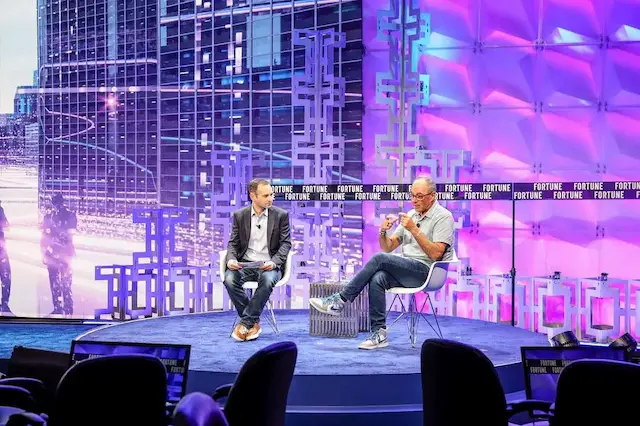400页浓缩MBA课程你信吗
|
需要花费两年时间,外加25万美元才能学到的课程,真的可以浓缩进一本书里?《财富》杂志(Fortune)资深专栏作家、《商界大腕完全行为指南》(The Curriculum: Everything You Need to Know to Be a Master of Business Arts)一书的作者就希望能做到。
如果你认为这种想法很荒谬,那么,仅靠走马观花式的了解是不会打消你的质疑的。从认证机构国家严肃研究协会(National Association for Serious Studies,“献身于各种严肃研究”),再到核心课程,如“不要犯傻”和“疯狂的人”,书中对过度保守的商学科目进行了讽刺。大家可以想象一下(喜剧明星)斯蒂芬•科尔伯特遇到商学院会碰撞出什么火花,而且还是带图解的那种。
书中尖锐的幽默并不令人意外。相反,真正令人意外的是斯坦利表达方式背后的真相。正如电影《办公室》(The Office)和漫画人物“呆伯特”(Dilbert)放大了朝九晚五无聊工作的不合理之处一样,斯坦利也在通过幽默的方式,寻找公认的商学教育法的漏洞。例如,在术语中,市场营销被定义成“为没有人需要的产品或服务创造需求的艺术”,而并购被比喻成昆虫的结合:“交配刚一结束,其中一方的身体便被对方吃个精光。”
除了这些尖锐的讽刺外,书中也包含许多宝贵的建议:电子邮件要写得简洁,别说傻话,学会如何高效地吹牛,要恭敬但不要奴颜婢膝,放弃蓝牙设备等。
由于本书没有学术类图书的限制,因此斯坦利把政治正确性完全抛在脑后,为读者奉上了一堂商学速成课,同时还挖掘出了商业的本质:追逐利益的人类之间的互动,以及互动过程中产生的各种复杂情况。虽然本书不可能取代MBA课程,但却是一份有含金量的指导性读物,可以让读者了解商业世界的玄妙之处。
斯坦利在接受社交网站Poets&Quants的采访时透露了本书创作的动机,那就是商学院的不足之处,以及给商学院学生的建议。
是什么促使你创作这本书?
我写过的许多书经常会横跨奇思妙想与忠告之间的界限。在《马基雅弗利式的处世之道》(What Would Machiavelli Do?)一书中,我探讨了为什么吝啬的人在商界更如鱼得水。在《疯狂的老板》(Crazy Bosses )中,我认为病态在其他场合可能是不利因素,但在商业中可能是优点。我一直在思考这些事情,同时我又在商界工作了很长时间,所以正如传统MBA研究商业的合理因素一样,我想把这些观点作为一个研究课题,探索商业中不合逻辑的因素。
我一直认为,商业并不像商业刊物中描述的那样,而是不合逻辑的,更加感性,更加幽默,受到个性的驱动。我看过人们在读MBA时学习的内容。我研究了顶级商学院的课程,比如凯洛格(Kellogg)、哈佛(Harvard)、斯坦福(Stanford)和斯特恩(Stern)等商学院。是什么因素或哪些能力让我所了解的人取得了成功?大多数课程根本没有回答这个问题。所以,我就编写了这部替代性的课程。
书中对MBA进行了尖锐的批评。你认为MBA是毫无用处的学位吗?
我认为商学院把自己包装成了解决所有问题的灵丹妙药。在加利福尼亚州的奥克兰,我看到三块巨大的广告牌,告诉人们应该去读MBA。他们可以选择戴维斯(Davis)、伯克利(Berkeley)或斯坦福。但人们真的需要MBA吗?
我所在的部门,大多数人都没有MBA学位。其中有几位学过金融,但没有销售专业的毕业生。要成为一个成功的销售员,我并不认为MBA是必要条件。销售是一种与生俱来的品质,就像音乐才能一样。如果我没记错的话,我所认识的优秀销售代表没有一个人读过商学院。事实上,有一个例外,但他属于天才型的人物,MBA的经历让他当上了CEO。 |
Can you really pack a two-year, $250,000-curriculum in a single book? Author and longtime Fortune columnist Stanley Bing sets out to do exactly that in The Curriculum: Everything You Need to Know to Be a Master of Business Arts.
If the concept strikes you as preposterous, a peek inside will do little to dispel your doubts. From the accreditation body, the National Association for Serious Study ("dedicated to a number of serious studies"), to a core curriculum that includes "Not Appearing Stupid" and "Crazy People," the book offers a satirical take on an overly staid subject. Think Stephen Colbert meets B-school -- with info-graphics.
The humor, though pointed, is not what's surprising. Rather, it's the truth behind Bing's approach. Just as "The Office" and "Dilbert" magnify the absurdities of the 9-to-5 grind, Bing uses humor to poke holes in accepted business pedagogy. The glossary, for instance, defines marketing as the "art of creating demand for a product or service nobody knows they need," while mergers are compared with insect marriage: "one spouse, and all its bodily parts, will be eaten as soon as intercourse is done."
For all its flippancy, the book includes valuable lessons: write short emails, don't sound stupid, learn how to bullshit effectively, be respectful but not servile, and ditch the Bluetooth.
Without the strictures of academia, Bing throws political correctness to the wind and offers his readers a crash course on business boiled down to what it really is: interactions between humans for money and all the complications that invites. While the book is not likely to replace an MBA, it's certainly a solid guide to navigating the nuances of the business world.
In an interview with Poets&Quants, Bing lays out his motivations for writing the book, where B-schools are missing the mark, and his advice for business students.
What prompted you to write the book?
I've written a lot of books that straddle the line between whimsy and advice. In What Would Machiavelli Do? I explored why mean people do so well in business and in Crazy Bosses I explored the idea that pathology, which would be liability in any other venue, can be an asset in business. So I've been thinking about these things and working in corporations for a long time, and I wanted to aggregate a lot of these ideas in a course of study that would explore the irrational like a classical MBA explores the rational.
I've always seen business as being more irrational, emotional, personality-driven, and humorous than how it's portrayed in business writing. I looked at what people study when they get their MBAs. I reviewed the curricula of top business schools, including Kellogg, Harvard, Stanford, and Stern. Much of it didn't speak to me or the skills that deliver success to people I've known. So I did an alternative curriculum.
The book is quite harsh on the MBA. Do you think it's a dud degree?
I think business school is marketed as if it's a panacea for everything. I stopped in Oakland, Calif., and saw three enormous billboards telling people they should go get their MBA. They can choose from Davis, Berkeley, or Stanford. But do all these people really need an MBA?
In most of my department, there are no MBAs. We do have a few in finance, but not in sales, and I don't think you need an MBA to be successful in sales. It's an innate quality, like musical talent. Unless I'm missing something, I don't know one great sales representative who learned it in business school. Actually, I can think of one, but he's a genius and his MBA led him to become a CEO. |












